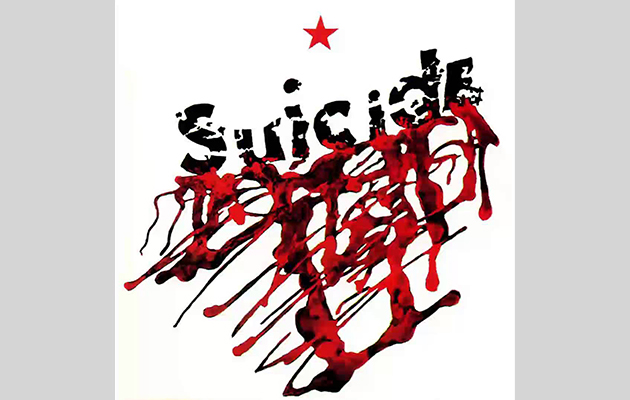MARTIN REV: It was where Springsteen cut his first albums, a 16-track place, an older board. That studio was a great experience, I loved it. Ultima, it was called. It was about an hour’s drive out of New York, very suburban, leafy. Marty Thau would pick us up in a rented car and we’d drive up. It was visionary, especially after the tracks were done: to sit in the control room, get more and more bombed out of our minds, then drive back into the city at night. It was beautiful.
MARTY THAU: They were pretty intense in the studio. Alan was so wound up he had to leave the control room, he couldn’t just sit. He was a very nervous type at that moment. I guess it was the recording process. Although they had been around for a long time, they were inexperienced in that.
MARTIN REV: In a way, though, the years of waiting had been good. It formulated our material. We had been doing the material live to a point where it had become really clear, really defined. So the album was a live album, essentially. However long the album is, that’s basically how long it took to cut it.
MARTY THAU: We did all that album in four nights.
CRAIG LEON: It’s pretty much a live performance. The reverb, though, was something I brought to the party a bit. I had just been in Jamaica, working with Lee Perry and Bob Marley, and I was getting into dub. So between that and a Sun Records thing, I wanted all these repeat echoes on everything. One of my favourite albums was Can’s Monster Movie, and that was a role model, plus Jamaican dub, plus rockabilly echo, plus pitch feedback, sending in microphonic EQ to the echo on the reverb, and then bringing them all back. That process is what you get on “Frankie Teardrop” – a lot.
MARTIN REV: “Frankie” definitely had its own flavour immediately. It was more epic in what it was trying, more descriptive, wider, compared with other tracks. But the words weren’t exactly the same. When we first went in, it was “Frankie Spaceman.” But somewhere in the session, Alan wanted to change the lyrics. He’d read a newspaper article, about a guy who couldn’t handle his economic situation and just cracked up. Out of that came “Frankie Teardrop.”
ALAN VEGA: I had been doing this thing about Frankie The Detective and a space alien – but the more I worked on it, the less enamoured I was. Everything else sounded so good, my thing sounded just bleh, secondary. But I always had crazy Frankie there, Frankie the killer, in the background. To get him out and up front took time and energy, and that was triggered by Rev’s music.
MARTY THAU: “Frankie” was really a political statement: 20-year-old Frankie can’t get a job, can’t support his wife and kids, freaks out, kills them. Society has driven him to it. In the end, the statement is, “Rise up, we’re all Frankies.” We’re all under the thumb of those who control us. Rise up and say something about it.
CRAIG LEON: Frankie was actually part one of a duo of songs. There was another called “Dominic Christ,” which didn’t make it onto a record until years later. It was like this mini horror opera, this slice of life, urban decay, ringing to the sounds of Alan’s screams.
ALAN VEGA: That fucking scream. Holy Christmas. That whole track took on a life of its own. I almost screamed myself out, almost wound up on the floor puking. I was seeing double by the time we left the studio. The whole thing was intense. That scream had a big effect on people. It was either a big turn on or a big turn off. Doing “Frankie” live after that record became really tough. I didn’t want to do it, and I knew I had to. It was hard. Gut wrenching. But I knew it had to be like that.



